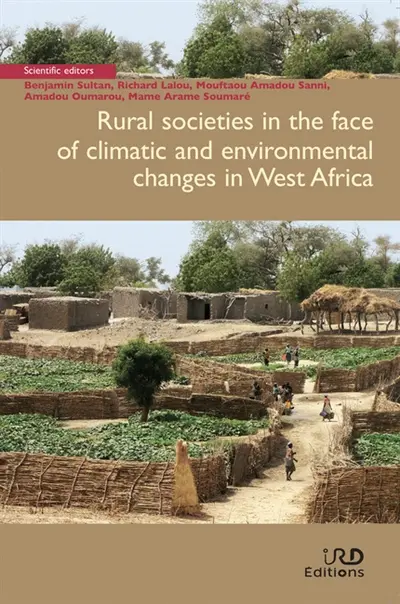en savoir plus

Permet à tous ses détenteurs d'obtenir 5% de réduction sur tous les livres lors du retrait en magasin (réduction non cumulable avec les réductions de type étudiant).
Offre également un certain nombre d'avantages auprès de nos partenaires.
Avec les favoris, retrouvez dans un espace les sélections effectuées au fur et à mesure de vos navigations dans le site.
Constituez pour votre usage personnel vos listes de livres en prévisions d'achats futurs et votre sélection d'articles, dossiers, événements, vidéos ou podcasts préférés ou à découvrir plus tard...
Il suffit simplement de cliquer sur "Ajout Favori" sur chaque page qui vous intéresse pour les retrouver ensuite dans votre espace personnel.
Requiert un compte Mollat
Requiert un compte Mollat
en savoir plus
Résumé
Des chercheurs africains et français issus de différentes disciplines (climatologie, agronomie, hydrologie, démographie, géographie, anthropologie, histoire) analysent l'imbrication du changement climatique et des évolutions sociales, politiques, économiques et techniques pour les sociétés rurales africaines, mettant notamment en avant leurs capacités d'adaptation et d'évolution. ©Electre 2026
Quatrième de couverture
The future of West Africa depends on the capacity of its agriculture to ensure the food security of the population, which should double in the next 20 years, while facing up to the new risks resulting from climate warming. Indeed, the changes in temperature and precipitations already operating and that should become more marked will have serious effects on agricultural production and water resources in this part of Africa in the near future.
One of the keys to meeting this new challenge is the adaptation of rural societies to climate risks. To gain better knowledge of the potential, processes and barriers, this book analyses recent and ongoing trends in the climate and the environment and examines how rural societies perceive and integrate them : what are the impacts of these changes, what vulnerabilities are there but also what new opportunities do they bring ? How do the populations adapt and what innovations do they implement - while the climate-induced effects interact with the social, political, economic and technical changes that are in motion in Africa ?
By associating French and African scientists (climatologists, agronomists, hydrologists, ecologists, demographers, geographers, anthropologists, sociologists and others) in a multidisciplinary approach, the book makes a valuable contribution to better anticipation of climatic risks and the evaluation of African societies to stand up to them.

